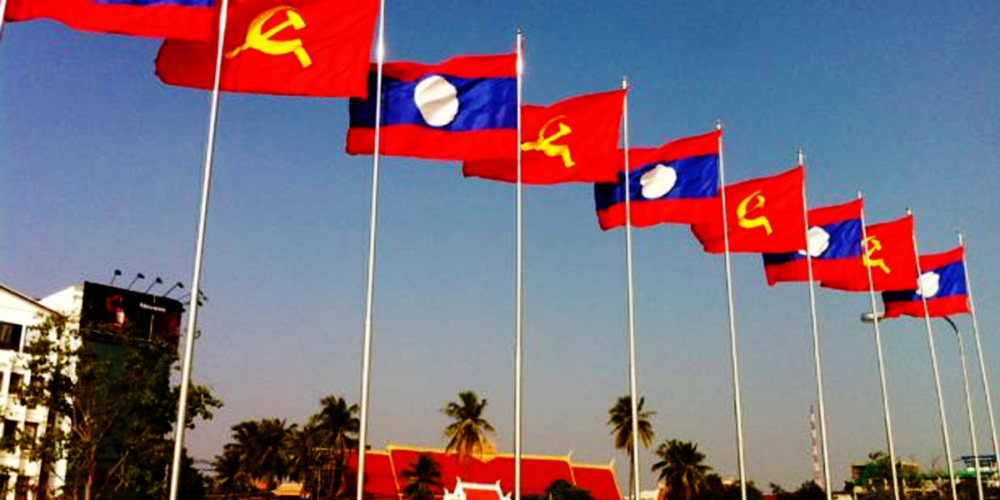The Lao Peoples Democratic Republic came into being in 1975, after a decade of relentless US bombing against the Lao, Vietnamese, and Cambodian peoples. Laos is per capita the most bombed country in the world. 10% of its population were killed directly by US bombs and a similar number left the country. Building socialism in this context was, and is, not an easy task for the Lao People’s Revolutionary Party (LPRP). Even today, a dozen people are killed every year from unexploded US bombs.
The US financing of opium traffickers and other counter-revolutionaries saw terrorist attacks up to the early years of the 21st century. Added to this were the border incursions from Thailand, backed by the US. Today, CIA front group the National Endowment for Democracy maintains a presence in Laos. Lao PDR retains a very close fraternal relationship with the Socialist Republic of Vietnam along with the People’s Republic of China.
The LPRP see Laos as still being in the national democratic phase of its revolution, not yet in a position to claim the victory of socialism, but rather building the foundations of socialism.
Built under the Belt and Road Initiative, the Laos-China Railway was opened in late 2021. It connects Laos to the Chinese national railway infrastructure and is planned to be expanded to reach all the way to Bangkok and Singapore. In a landlocked country such as Laos, this is a major development for its economy, boosting its tourism industry and exports. Additionally, China has built – for free – a cultural hall and a major new hospital in Vientiane, with Chinese doctors and nurses to spend 3 years training in their Lao counterparts. This is a part of the Chinese assistance to the Lao plan to provide universal health insurance to all by 2025.
It is difficult to see how China’s assistance to Laos can be labelled imperialist, given that imperialism usually does not help its victims construct modern railways to help boost needed exports or help fund medical care for all in the direction of the construction of socialism.
There have been major efforts to curb drug- and human-trafficking and, unlike neighbouring Thailand, there is no exploitative sex industry or over-reliance on Western tourism. Crime is virtually non- existent. Efforts to increase the export of electricity have meant that there is a long-term plan to boost economic performance, as Laos leaves behind its Least-Developed Countries status.
People’s Democracy is exercised through the LPRP and the Lao Front for National Construction, which also takes in the mass organisations, the largest of which is the Lao Women’s Union, along with the youth, unions, and veterans. Indeed, Laos has 2 days dedicated to celebrating the role of women in the country, International Working Women’s Day (8th March) and Lao Women’s Union Day (20th July). 30% of those elected to parliament are women.
At a local level, every village has a local militia, essentially a voluntary police-defence force, who participate in a variety of community activities. Every village is led by an elected village chief. In general and district elections, voting is compulsory and therefore has a very high turnout. Ethnic minorities also have a strong presence in parliament.
There is real poverty in Laos, a result of French colonialism – who did not build so much as a railway – along with US imperialist interference which still sees the country littered with unexploded ordnance today. However, aided by its allies Vietnam and China, the Lao PDR has managed to achieve impressive reductions in poverty, going from a 46% poverty rate in 1992, to 18% today. Most of the country continues to work in agriculture, although the industrial base of the country is growing, a sign of development. Life expectancy in 1975 was only 46 years, now it is over 70 years. Literacy has gone from 25% in 1975 to over 87% now. The state is developing universal public healthcare to all citizens by 2025.
These may seem modest achievements, but socialism is not built in conditions of our choosing. The fact that the Lao people have managed to not only survive but also develop shows the huge potential of socialism in the country. In particular, the fact that, with Chinese assistance, they built a modern railway that is far more impressive than the rail infrastructure in Ireland, despite the US bombs, shows that where imperialism destroys, socialism builds.






